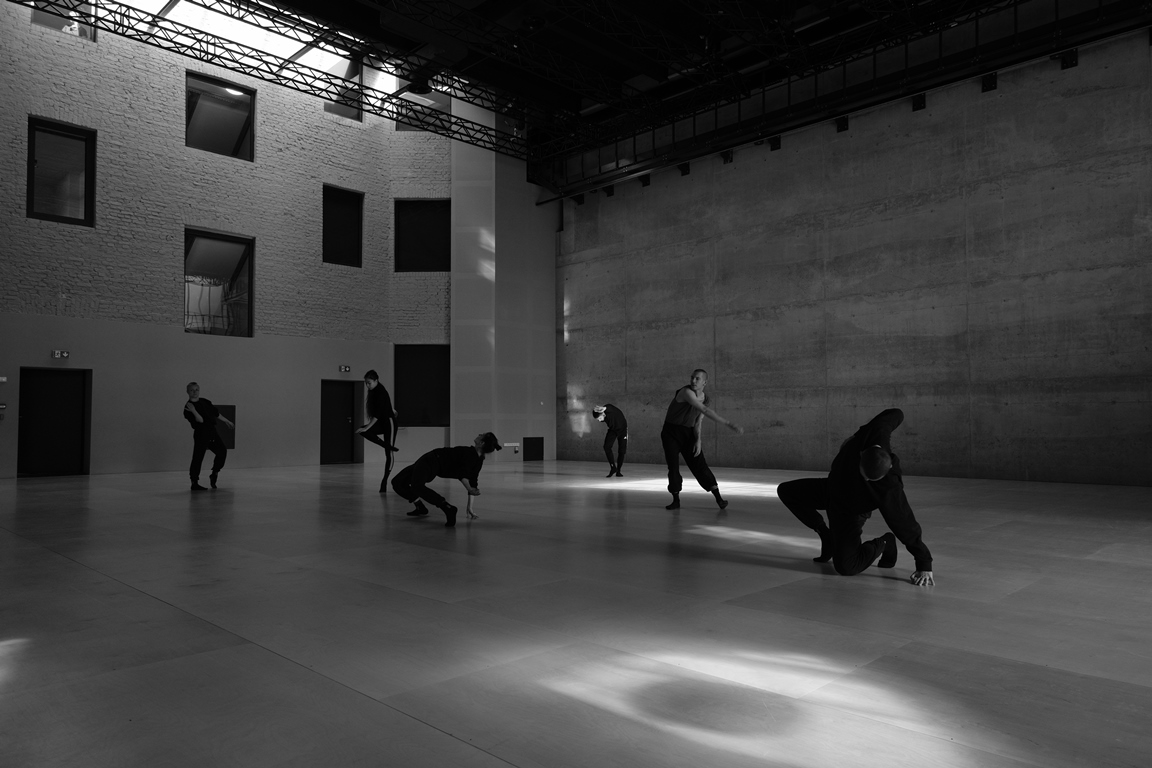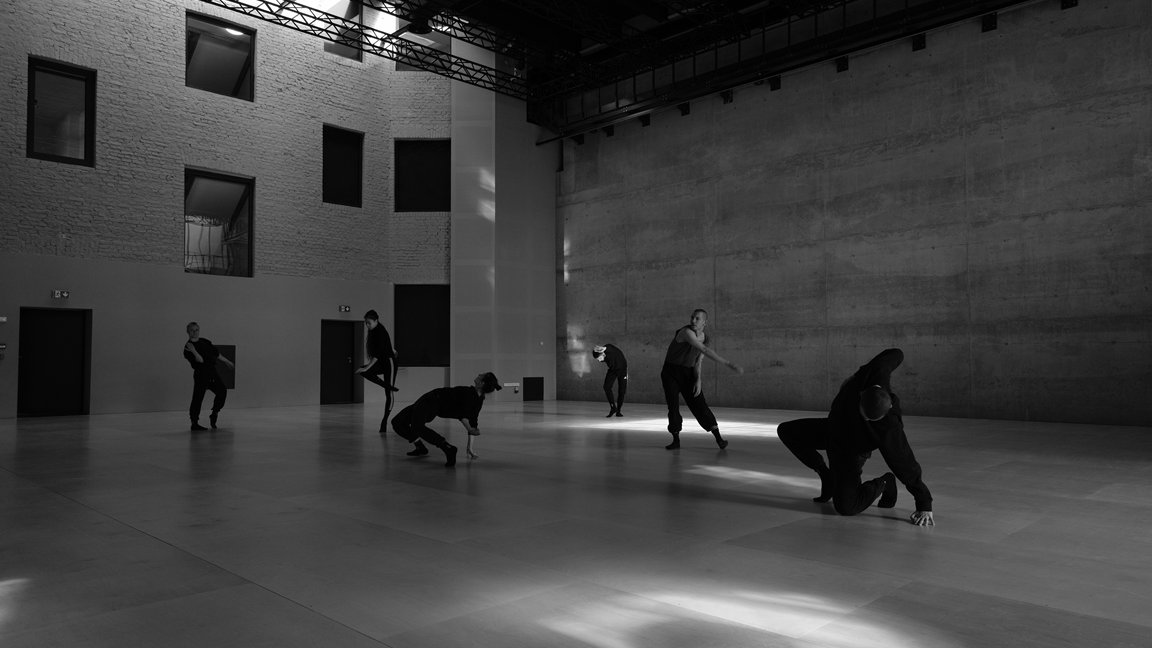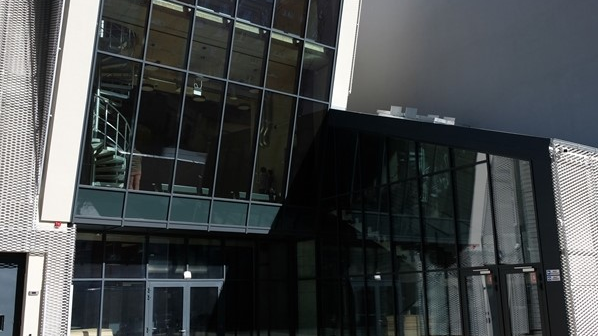This is the moment the team of the Polish Dance Theatre (PTT), which is one of Europe's most prominent dance theatres, have all been waiting for practically since its inception. "Even the theatre's founder [Conrad Drzewiecki (editor's note)] felt the troupe needed their own space in which to operate and reach their full potential. The only question has always been where to find it and who could help make this dream reality," said Iwona Pasińska, current PTT Director, at an online meeting in the new venue in January. Włodzimierz Mazurkiewicz, Head of Culture at the Marshal's Office, added: "Through all these years, we had this iconic theatre in Poznań that was a bit like yeti - everyone knew it existed, but no one could ever spot it."
Ever since it was founded, the Theatre shared space with the Comprehensive Ballet High School at ul. Kozia. It has never had its own stage with all the essential facilities, and for years performed in space borrowed, for instance, from the Wielki Theatre, the Castle Cultural Centre, the National Museum, and the Poznań International Fair. "The theatre has always talked of finding its own space but no one ever succeeded in making it happen", explained Mazurkiewicz during the January meeting. "And it would still not be possible without the Director, her deputy, Adriana Mikołajczak, and a set of lucky circumstances: EU funds becoming available as the last chance for the theatre and a townhouse with great potential turning up. When I first got here, the building was vacant and it seemed a hazard to even go in", said Mazurkiewicz about how the project started. "When the renovation commenced, the main building had been disused for years, while the newer outbuildings housed an emergency room and doctor's offices. It was not the kind of place you'd expect to find such a gem", echoed Iwona Pasińska.
After the renovation, the ul. Taczaka 8 townhouse looks magnificent. It sports a new façade, whose form alludes to the nineteenth-century original. A new four-storey glass-clad lean-on added to the south houses a multimedia stage and a rehearsal studio. A preserved historic section of the façade, whose view from the street is obstructed, seamlessly connects the historic and new parts of the complex. In future, green terraces will be placed on the rooftop with greenery cascading down to lower floors. The courtyard will accommodate a café with a library featuring books on dance, available to the general public. The building is entirely disabled-friendly: one can exit it from the ground level on either ul. Taczaka or the side of the University of Economics without as much as a single step.
The impressive studio and performance hall has the seating capacity of 150 people. "It is designed not only for dance, but also for drama performances. It can additionally double as a concert hall, cinema, and conference hall. And that is not all", notes Iwona Pasińska. "The ingenious thing about it is that it is multifunctional and allows the viewing of shows from any direction. The audiences will see the stage differently and rediscover it every time", she adds. The Director also announced that the PTT will perform regularly and invite guest performers. The new space will additionally accommodate workshops and classes for both professional dancers and amateur dance lovers.
The upper levels of the restored townhouse will house offices, theatre archives, a server room, storage space, as well as a gym and rehabilitation rooms for dancers. "This is to make sure dancers' bodies are in the top shape required to do all the things needed on stage", said Director Pasińska during the construction. One of the floors also features guest rooms with kitchen facilities for theatre collaborators and a mezzanine from which to manage performances. The total project cost of PLN 21 million included an EU grant of about PLN 8 million. The balance came from Wielkopolska Region government and the theatre's own funds.
The Polish Dance Theatre - Poznań Ballet was founded in 1973 by Conrad Drzewiecki, a dancer, choreographer and manager of the ballet company of the Wielki Theatre of Poznań, on the initiative and with the support of the city authorities. Throughout the PTT's history of nearly 50 years, the artistic identity of the theatre has been shaped by three outstanding dancers and choreographers. After Drzewiecki, the first one of the three, came his immediate successor, Ewa Wycichowska, appointed by Drzewiecki himself. She was prima ballerina in the Wielki Theatre of Łódź, an outstanding choreographer and educator and one of the greatest artistic personalities in the history of Polish artistic dance. Wycichowska ran the PTT for nearly three decades. Following her departure in 2016, the directorship of the theatre passed to Iwona Pasińska, a dancer, choreographer, educator, doctor of theatre studies, and the first soloist in Ewa Wycichowska's group.
The official opening of the PTT's new space is scheduled to coincide with the International Dance Day on 29 April. The inaugural programme includes the outdoor event "National Dancing", which is a procession down Taczaka Street to the tune of a polonaise.
Sylwia Klimek
translation: Krzysztof Kotkowski
- opening of new location of the Polish Dance Theatre
- ul. Taczaka 8
- 29 April, 6pm-10pm
- for more, see: www.ptt-poznan.pl
© Wydawnictwo Miejskie Posnania 2021






